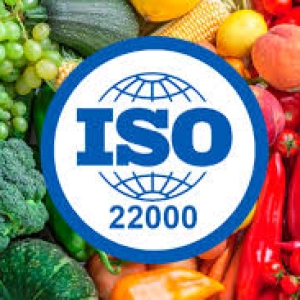Understanding ISO Certification: A Comprehensive Guide
Introduction
In today's global marketplace, quality management systems play a pivotal role in ensuring the efficiency, effectiveness, and credibility of businesses across various industries. One of the most recognized and widely implemented quality standards is the International Organization for Standardization (ISO) certification. ISO certification signifies that a company complies with internationally recognized standards, demonstrating its commitment to quality, customer satisfaction, and continuous improvement.
What is ISO Certification?
ISO certification is a formal recognition by an independent third party that a company's management system, processes, products, or services meet specific requirements set by ISO. The International Organization for Standardization develops and publishes international standards to ensure quality, safety, and efficiency across industries worldwide. ISO certification serves as a mark of credibility, assuring customers, partners, and stakeholders of a company's commitment to quality management.
ISO certification covers various aspects such as quality management (ISO 9001), environmental management (ISO 14001), information security management (ISO 27001), and many more. Each ISO standard outlines specific requirements and guidelines for organizations to follow, tailored to their respective domains.
Benefits of ISO Certification
Obtaining ISO certification offers numerous benefits to organizations, regardless of their size or industry. Firstly, ISO certification enhances the credibility and reputation of a company in the eyes of customers, suppliers, and other stakeholders. It signifies a commitment to quality, compliance, and customer satisfaction, which can lead to increased trust and loyalty.
Moreover, ISO certification can streamline internal processes, improve operational efficiency, and reduce costs by eliminating waste and optimizing resources. Compliance with ISO standards often results in enhanced product or service quality, fewer defects, and better overall performance.
From a competitive standpoint, ISO certification can provide a competitive edge in the marketplace. Many government agencies and large corporations require their suppliers to be ISO certified, making ISO certification a prerequisite for participation in certain markets or industries.
Furthermore, ISO certification promotes a culture of continuous improvement within organizations. By implementing ISO standards, companies are encouraged to regularly review, evaluate, and enhance their processes, leading to ongoing innovation and growth.
Process of Obtaining ISO Certification
The process of obtaining ISO certification typically involves several key steps. Firstly, the organization must decide which ISO standard(s) are relevant to its business objectives and operations. Once identified, the organization needs to familiarize itself with the requirements of the chosen standard(s) and assess its current processes and systems against those requirements.
Next, the organization must develop and implement a quality management system (QMS) or other management systems that align with the ISO standard(s). This may involve documenting procedures, establishing controls, and training employees to ensure compliance.
After implementing the necessary changes, the organization undergoes an audit by an accredited certification body. The audit evaluates the organization's adherence to the requirements of the ISO standard(s) and may include a review of documentation, interviews with employees, and on-site inspections.
If the organization meets the criteria outlined in the ISO standard(s), it is awarded ISO certification. The certification is typically valid for a specified period, during which the organization must undergo regular surveillance audits to maintain certification.
Challenges and Considerations
While ISO certification offers numerous benefits, it also presents challenges and considerations for organizations. One of the main challenges is the initial investment of time, resources, and effort required to implement and maintain ISO standards. Organizations must allocate sufficient resources and ensure commitment from top management to support the certification process.
Additionally, achieving ISO certification does not guarantee success or improvement on its own. Organizations must actively engage in continuous improvement efforts, monitor performance metrics, and address any non-conformities identified during audits.
Furthermore, maintaining ISO certification requires ongoing dedication and investment. Organizations must stay updated on changes to ISO standards, adapt to evolving regulatory requirements, and address emerging risks and opportunities.
Conclusion
In conclusion, ISO certification is a valuable tool for organizations seeking to enhance their credibility, improve their processes, and gain a competitive advantage in the marketplace. By adhering to internationally recognized standards, companies can demonstrate their commitment to quality, customer satisfaction, and continuous improvement. While obtaining ISO certification requires effort and investment, the benefits far outweigh the challenges, making it a worthwhile endeavor for any organization committed to excellence.






